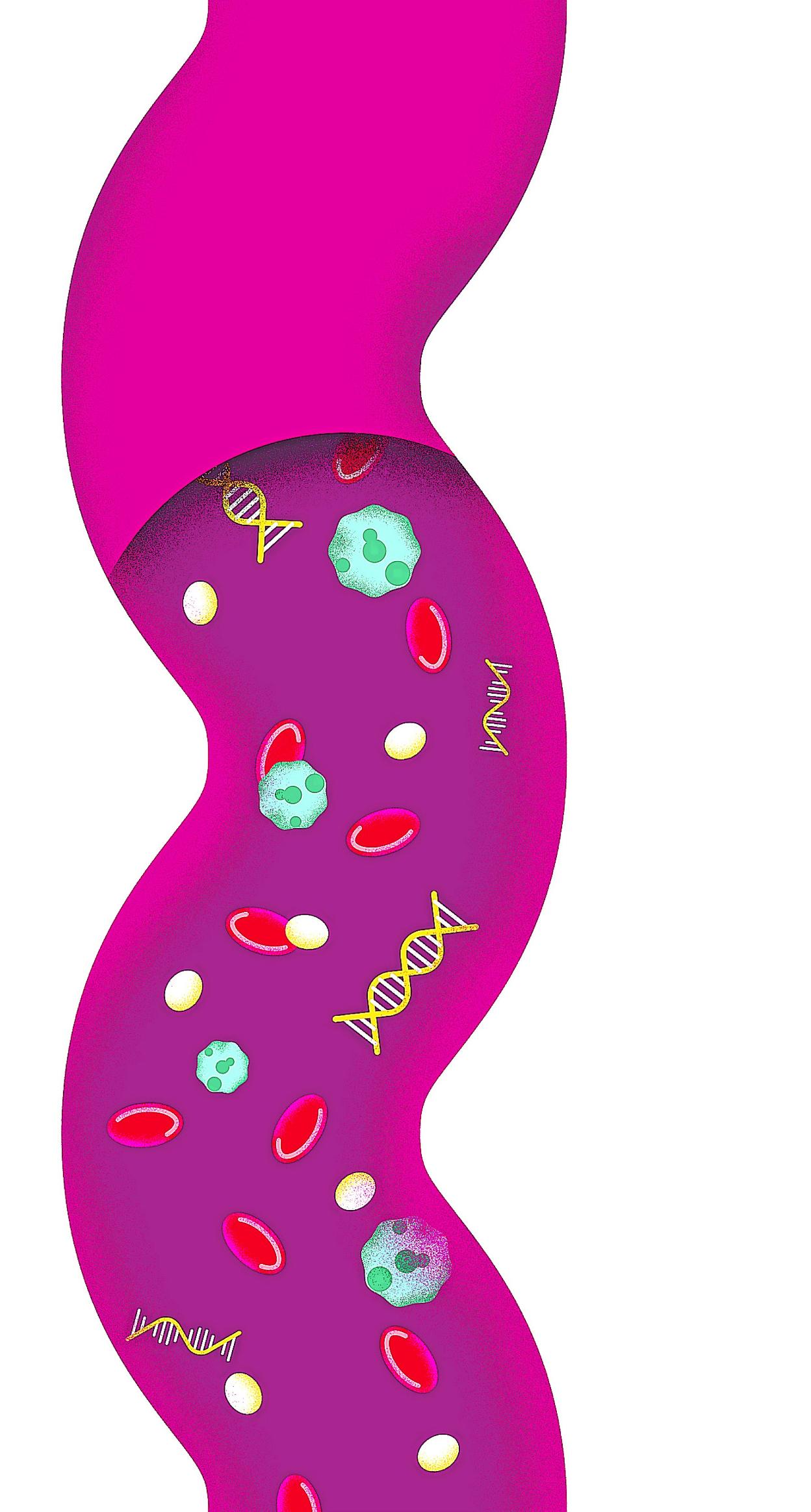Our health in a drop of blood
Liquid biopsies are on their way to becoming the top diagnostic technique
FERMIN APEZTEGUIA
Friday, 5 August 2022, 14:00
Everything that happens in our body can be seen from a drop of blood. Every sick or inflamed tissue releases a substance which warns that somewhere in the body there is an emergency. The analysis of all these biological footprints is known as a liquid biopsy, a new diagnostic technique which, from a simple sample of blood, provides an enormous amount of information about a patient's health. Paradoxically, in the midst of the greatest crisis for the health service, medicine is advancing at a dizzying speed.
This hasn't happened overnight. Science has spent more than a decade working on this revolutionary tool, which only became part of clinical practice a few months ago, in 2021.
The discretion with which it has been done can only be explained by the brutal impact of the Covid pandemic, which has captured all social and media interest.
Technological advances which have taken place in the field of molecular biology and greater understanding of the human genome have made blood the biggest source of knowledge about human health. An analysis which is as simple as the routine test for cholesterol, iron and calcium levels now enables doctors to know whether a patient suffers from certain cancers and the way they are evolving.
At the moment the list includes some ovarian, lung, breast and prostate tumours but over the next few years it should also cover not only more oncological illnesses but also more common and diverse pathologies.
The experts say that within a few years the list will include practically everything. Blood will be able to diagnose illnesses ranging from diabetes to coronary problems and also mental illness, from less severe depression to dementia.
"The liquid biopsy will radically change the way illnesses are diagnosed," says Bruno Paiva, the director of Flow Cytometry at the University of Navarra.
Oncological illnesses were the first to benefit from this new form of diagnosis. If the research has focused more on those than other pathologies it is because through these they know that cancer has a 'bar code' which travels through the blood and warns of its existence.
From the time a tumour starts it leaves its DNA in the circulatory system which enables analysts to learn where it is and guess its movements. In the fight against cancer, blood offers four indisputable advantages against other conventional diagnostic techniques and is an extraordinary way of detecting potentially fatal illnesses early. "A lot of tumours are not cured because treatment starts so late. Liquid biopsy enables us to find them on time," says Dr Paiva.
The blood also gives scientists genetic information about the tumours, which is critical to determine the best type of treatment. The generic term 'cancer', actually covers more than 200 very different illnesses.
The analysis also provides a type of snapshot of where the illness is at any time and this helps specialists to see the impact the treatments are having, whether they are actually working or whether they need to be changed. "This form of science has opened a door for us, and it has only just begun," says Bruno Paiva.
